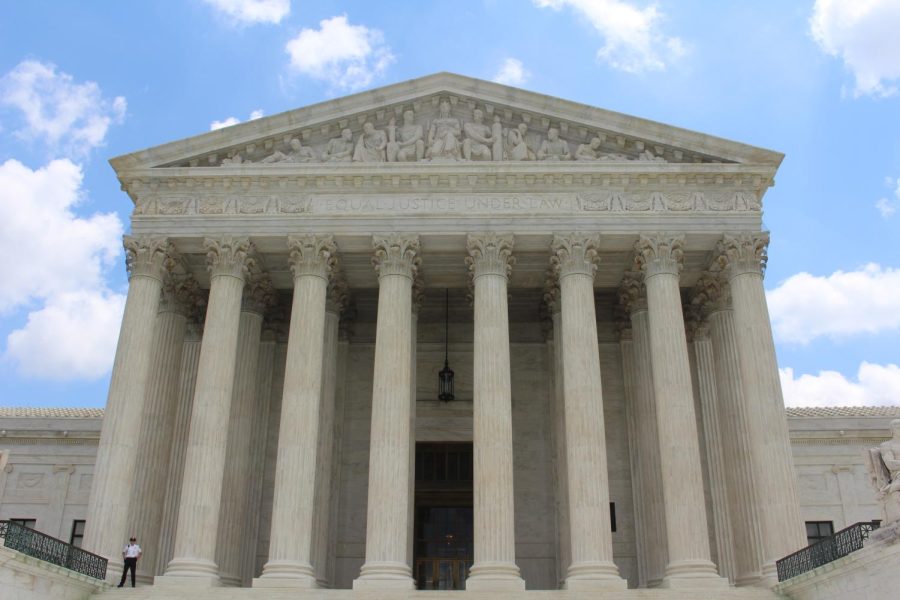Historic SCOTUS nomination
UNSPLASH PHOTO COURTESY OF Claire Anderson
Ketanji Brown Jackson is the first Black woman to serve on the Supreme Court, appointed by President Joe Biden. https://unsplash.com/license
April 14, 2022
“Two years ago, I made the commitment to nominate the first Black woman to the Supreme Court, ” posted President Joe Biden on Instagram. “I’m proud to nominate Judge Ketanji Brown Jackson.”
On Jan. 26, Justice Stephen Breyer announced his decision to step-down from the U.S. Supreme Court at the end of this year’s term. Many Democrats have urged for Breyer to step-down, contrary to his former liberal colleague, Ruth Bader Ginsburg, who held the life-long position until her passing in September 2020. Ginsburg’s passing opened the doors for Former President Donald Trump to move the court further right with his nomination of Amy Coney Barrett. To prevent this from happening again, Democrats are looking for change while they are in power.
With the sudden news of Justice Breyer’s retirement, all eyes were on Biden for his nomination. Throughout his 2020 Presidential campaign, Biden pledged to appoint the first Black woman to the U.S. Supreme Court. Media outlets began to discuss how this hypothetical appointment could promote diversity within federal power.
According to the New York Times, “His [Biden’s] promise also underscores how much Black women have struggled to become part of a very small pool of elite judges in the nation’s higher federal courts.”
However, now that this has become a reality, many are calling into question the reasoning behind this decision.
For a month Biden deliberated between a pool of well-qualified, intelligent and promising women. Ultimately, on Feb. 25, President Biden formally announced his Supreme Court Nominee, Judge Ketanji Brown Jackson.
Although this push for diversity is undeniably a step in the right direction, some Americans question the legality of Biden’s promise.
There is no official ruling that prevents him from making this promise — selecting a nominee from a specific category of people is no different than other presidents who have nominated white men or women from their political party.
Past the legality of this announcement, many have criticized Biden’s decision and wonder if his intentions were pure or for political gain.
History teacher Bill Clark agrees with Biden’s push for equality, however, he believes that Biden’s perspective is skewed and could have been better executed.
“There is a difference between affirmative action and forced affirmative action,” Clark said. “For Biden to introduce that when the Supreme Court has an issue to that very similar coming up is kind of a double standard.”
The “issue” mentioned by Clark is in reference to a newly accepted Supreme Court case, regarding admissions programs, like Harvard and the University of North Carolina taking account of race to foster educational diversity. This ruling could, once again, bring into question the legitimacy of affirmative action, as well as Biden’s original statement.
Nevertheless, Biden’s decision to nominate a Black woman to the Supreme Court was undoubtedly overdue and allows for further diversity in the national law.
“I can only hope that my life and career, my love for this country and this Constitution, and my commitment to upholding the rule of law and the sacred principles, upon which this great nation was founded, will inspire future generations of Americans,” Judge Ketanji Brown Jackson said.





